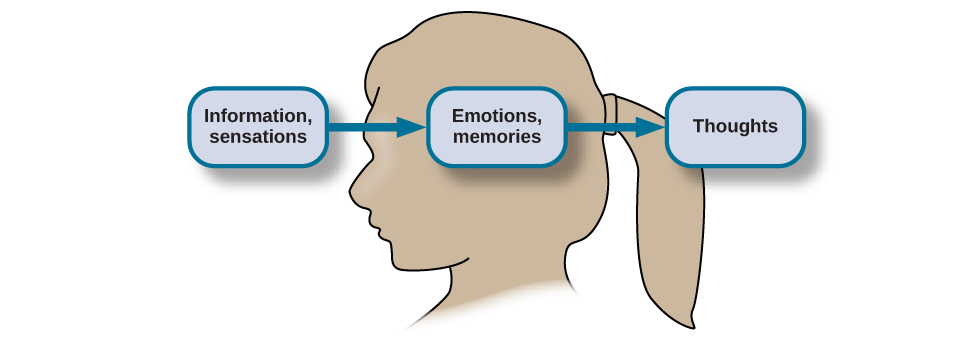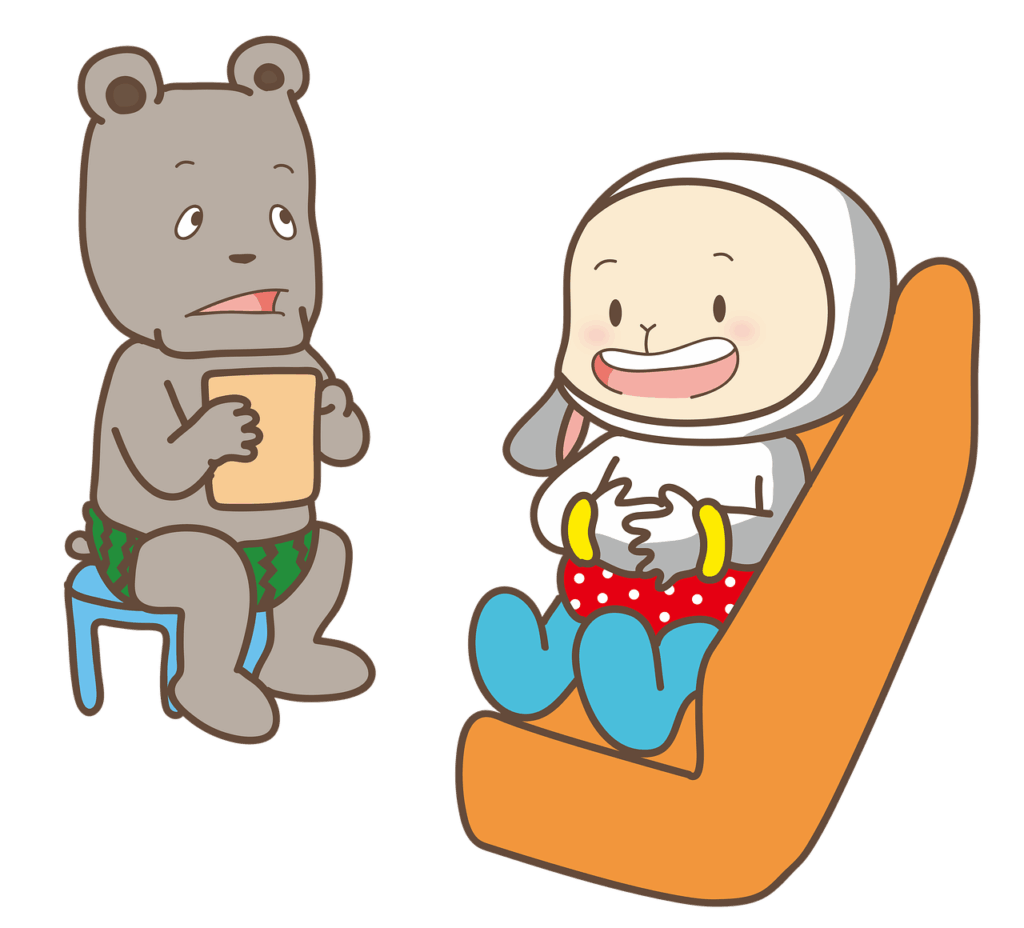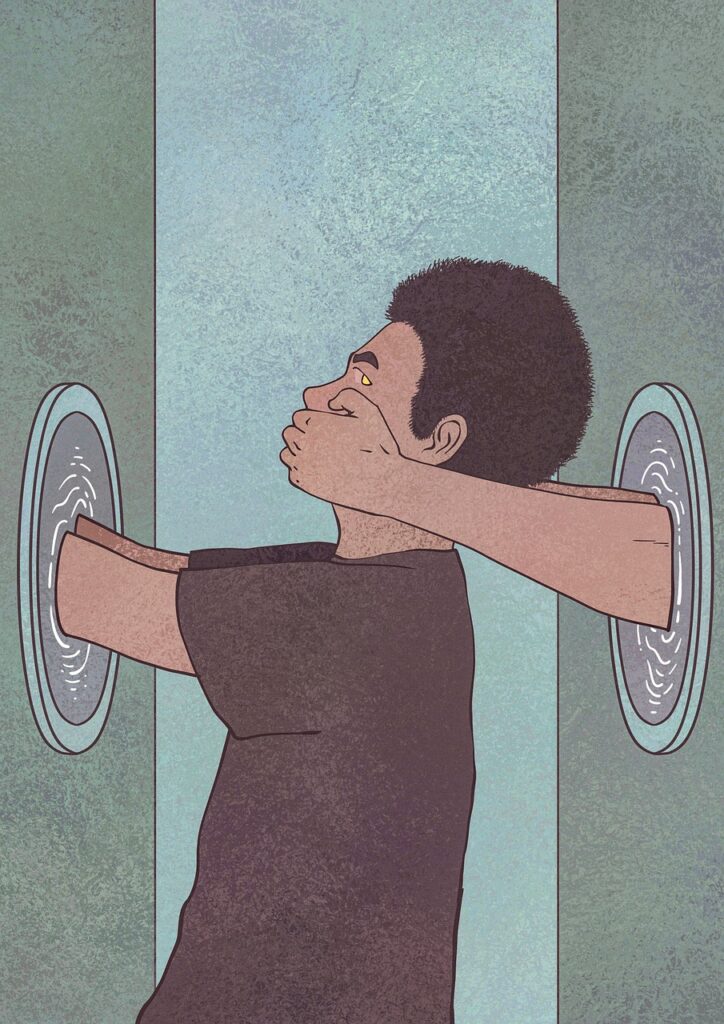In a world that constantly demands adaptability and strength, the concept of psychological resilience has never been more vital. It’s not merely about enduring hardship, but about actively navigating challenges, growing stronger through adversity, and maintaining a robust mental framework. At its core, resilience is a dynamic process, a set of learned and cultivated habits deeply rooted in the scientific study of the mind and behavior.
Psychology, as the scientific study of behavior and mind, provides an immense scope for understanding the mechanisms behind this remarkable human capacity. Its subject matter includes “conscious and unconscious phenomena, and mental processes such as thoughts, feelings, and motives,” offering a rich foundation for actionable strategies. For decades, psychologists have delved into understanding the intricate ways individuals and groups respond to stress, cope with change, and ultimately thrive.
Drawing from decades of research, expert insights, and the very historical evolution of psychological thought, we can distill powerful habits that fortify our inner strength. This exploration is designed to be action-oriented and practical, offering strategies that can be integrated into daily life for profound personal and professional development. Let’s dive into the first six psychological habits that highly resilient individuals actively cultivate.
1. **Practicing Introspective Self-Awareness**Highly resilient individuals possess a profound understanding of their inner world, a habit deeply rooted in the earliest definitions of psychology. William James, in 1890, famously defined psychology as “the science of mental life, both of its phenomena and their conditions.” This encompasses an awareness of one’s own conscious experiences, the subtle interplay of unconscious phenomena, and the intricate workings of thoughts, feelings, and motives that drive behavior.
This habit isn’t just about fleeting self-reflection; it’s a sustained, deliberate engagement with one’s mental landscape. It means pausing to identify the origins of particular thoughts, recognizing emotional triggers, and understanding the motivations behind actions. By consistently observing and acknowledging these internal processes, individuals gain clarity, which is the first step toward effective self-management and adaptive response.
Such self-awareness allows for a more nuanced interpretation of situations, moving beyond immediate reactions to a deeper understanding of one’s contributions and responses. It’s about becoming an active observer of your own internal dialogue, understanding its patterns, and identifying areas where mental processes might be leading to distress. This habit is critical because, as the Merriam-Webster definition notes, psychology relates to “of, relating to, or occurring in the mind,” and understanding these occurrences is foundational to resilience.
Moreover, the study of the “unconscious mind,” a key interest of psychologists, suggests that deep introspection can uncover hidden biases or ingrained responses that might otherwise derail resilience. Anna Freud, for instance, built on her father’s work by exploring “different defense mechanisms (denial, repression, and suppression) to psychoanalyze children.” While her work focused on children, the principle of understanding one’s own defense mechanisms and unconscious reactions is universally applicable for adults seeking to build greater self-awareness and, consequently, resilience.

2. **Actively Regulating Emotions and Cognition**Resilience isn’t merely the absence of distress; it’s the capacity to manage and navigate emotional and cognitive challenges effectively. This habit involves conscious efforts to steer one’s emotional responses and refine thought patterns. Psychology’s extensive research into “emotion, intelligence, subjective experiences, motivation, brain functioning, and personality” provides a roadmap for developing this crucial skill.
One aspect of this habit is stress management, which the context highlights as playing “an important supportive role” in health. Highly resilient individuals don’t avoid stress; they employ deliberate strategies to mitigate its impact. This might involve techniques to alter perception or to direct attention away from overwhelming stimuli. The ability to shift focus and maintain emotional equilibrium even under pressure is a hallmark of strong psychological regulation.
Furthermore, cognitive regulation involves actively challenging and reframing unhelpful thought patterns. The concept of “psychological strategies” that are “directed toward, influencing, or acting on the mind especially in relation to an individual’s willpower or behavioral motivation” directly speaks to this habit. It’s about exercising willpower to consciously choose how one perceives and interprets events, thereby influencing subsequent emotional states and behavioral outputs.
From the historical perspective, ancient Chinese philosophy “emphasized purifying the mind in order to increase virtue and power,” which implies a form of cognitive and emotional regulation to achieve higher states. Similarly, the diverse techniques encompassed by Yoga, aimed at “reaching higher awareness,” are historical precedents for the modern psychological habit of intentionally managing one’s internal states. Developing this habit means recognizing that while external events may be beyond control, our internal responses are often within our sphere of influence.
Read more about: Ever Wondered How You Grew Up? We’re Breaking Down the Wild Ride of Child Development!

3. **Committing to Lifelong Personal Development**Resilient people view life as a continuous journey of learning and growth, a habit intrinsically linked to psychology’s growth-oriented focus. The field itself is dedicated to “personal and professional development,” aiming to “benefit society” by enhancing human potential. This habit involves an ongoing pursuit of self-improvement, adaptation, and an open mind toward new experiences and knowledge.
Early work in psychology, particularly with children, underscores the importance of development. Anna Freud, for example, believed in supporting a child’s development and preventing neurosis, encouraging individual expression and catered therapy. While focused on early life, the underlying principle—that individuals are constantly developing and require support and tailored approaches—extends throughout the lifespan. Resilient adults understand that personal development is not a finite destination but an ongoing process of evolving and refining oneself.
This commitment to growth is also evident in the advancements made by psychologists like Leta Stetter Hollingworth. Her research challenged societal assumptions about women’s intellectual inferiority and impairment during menstruation, advocating for women’s inherent capabilities to reach positions of power. This highlights a resilient habit of challenging limitations and striving for one’s full potential, irrespective of societal barriers or inherited beliefs. It’s about a belief in one’s capacity to transcend perceived limitations through effort and continuous learning.
By engaging with this habit, individuals actively seek opportunities for new skills, expand their understanding of the world, and reflect on their experiences to extract lessons. It’s a proactive stance towards self-betterment, fueled by “motivation” – a key area of psychological study. This continuous pursuit of self-actualization not only bolsters individual capabilities but also enhances one’s ability to adapt to changing circumstances, a cornerstone of psychological resilience.
Read more about: Understanding Long-Term Care Insurance: Your Comprehensive Guide to Making Informed Decisions

4. **Employing Strategic Problem-Solving**Highly resilient individuals approach challenges not as insurmountable obstacles, but as problems amenable to strategic solutions. This habit is directly informed by psychology’s application “to the assessment and treatment of mental health problems” and its broader goal of “understanding and solving problems in several spheres of human activity.” It’s about harnessing analytical and adaptive thinking to navigate complexities.
This habit involves a clear, structured approach to difficulties. Instead of being overwhelmed, resilient individuals break down problems into manageable components, much like Wundt’s focus on “breaking down mental processes into the most basic components” in his psychological laboratory. By applying systematic thinking, they can identify underlying causes, devise potential solutions, and evaluate outcomes, fostering a sense of control and agency even in uncertain times.
Psychological strategies, described as influencing “willpower or behavioral motivation,” are integral to this habit. It’s about consciously choosing a proactive stance over a reactive one, mobilizing mental resources to find effective pathways forward. This contrasts with allowing misperception, as referenced in a Literary Hub example, to lead to exclusively “psychological terms” that might obscure practical solutions.
Moreover, the history of psychology illustrates a continuous effort to solve complex human problems, from mental disorders theorized by Hippocrates to have “physical rather than supernatural causes” to the development of therapeutic roles by many psychologists. Resilient individuals embody this spirit, viewing problems as puzzles to be solved rather than fates to be endured. They draw upon their internal resources and, when necessary, external knowledge to forge a path through adversity.
Read more about: Beyond the Lens: A Vulture’s Guide to the Multifaceted World of Filmmaking, From Concept to Cinema

5. **Mastering Effective Learning and Memory**Resilience is significantly bolstered by the ability to learn from past experiences and to retain valuable information, making effective learning and memory a critical habit. Psychology has long studied these processes, with pioneers like Hermann Ebbinghaus pioneering “the experimental study of memory and developed quantitative models of learning and forgetting.” This habit means actively organizing information, employing retrieval strategies, and consciously learning from successes and setbacks.
This habit involves more than just rote memorization; it encompasses understanding how information is acquired, stored, and retrieved. Mary Whiton Calkins, for example, “invented the paired associates technique of studying memory,” demonstrating structured approaches to learning. Resilient individuals apply similar systematic methods to absorb new skills, adapt to new environments, and remember coping mechanisms that have proven effective in the past.
The ability to learn from mistakes and to consciously integrate new information into one’s understanding of the world is a powerful component of resilience. It allows individuals to refine their strategies, avoid repeating detrimental patterns, and build a repertoire of responses for future challenges. The “quantitative models of learning and forgetting” developed in psychology remind us that these processes are not arbitrary but can be understood and optimized through deliberate practice.
Furthermore, this habit also extends to the ability to recall positive experiences and strengths, which can be a vital psychological resource during difficult times. By consciously focusing on what has been learned and remembered, individuals can reinforce their sense of competence and agency. This continuous feedback loop of learning, remembering, and applying knowledge strengthens their mental framework and prepares them for future uncertainties.
Read more about: Beyond the Search Bar: Your Ultimate Guide to Why Millions Are Hooked on the Bing Homepage Quiz Daily

6. **Adopting a Holistic Perspective (Gestalt Thinking)**Highly resilient individuals tend to perceive situations and themselves as integrated wholes, rather than fragmented parts. This habit draws directly from the principles of Gestalt psychology, which is “based upon the idea that individuals experience things as unified wholes.” It emphasizes that “the whole of experience is important, ‘and is something else than the sum of its parts.'”
This means that when faced with a challenge, a resilient person looks beyond isolated symptoms or events to understand the broader context and interconnectedness of factors. Instead of reducing thoughts and behavior into smaller component elements, as in structuralism, they grasp the entire picture, recognizing how various aspects of their life, environment, and internal states interact to create their current reality. This comprehensive view prevents tunnel vision and allows for more creative and integrated solutions.
By adopting this holistic perspective, individuals can better appreciate the complex interplay between their psychological state, their physical well-being, their relationships, and their external circumstances. For example, rather than simply labeling a feeling as ‘sadness,’ a Gestalt-informed approach might explore how that sadness is connected to recent events, long-held beliefs, and even bodily sensations, leading to a richer and more complete understanding. This comprehensive understanding is crucial for formulating effective, sustainable responses.
This habit fosters adaptability because it prevents rigid interpretations and encourages flexibility in thinking. It acknowledges that elements in isolation may seem overwhelming, but within the context of a whole system, new meanings and possibilities emerge. Embracing Gestalt thinking allows resilient individuals to navigate complexity by seeing patterns and connections, ultimately empowering them to respond with greater wisdom and efficacy.
Having explored the foundational internal habits that build resilience, our journey now turns to the equally crucial external and relational psychological habits. These are the ways resilient individuals interact with their environment, their communities, and the broader social fabric, drawing strength from connections and adapting to the world around them. Informed by social psychology, developmental theories, and the practical application of psychological knowledge in diverse contexts, these next six habits offer powerful strategies for strengthening resilience from an outward-in perspective.
7. **Cultivating Strong Interpersonal Relationships**At the heart of human experience lies the profound impact of our connections with others. Highly resilient individuals instinctively understand that robust interpersonal relationships are fundamental pillars of their mental and emotional fortitude. Psychology’s deep interest in “interpersonal relationships, psychological resilience, family resilience, and other areas within social psychology” underscores the irreplaceable role social bonds play in our ability to navigate life’s challenges, providing crucial emotional support and a sense of belonging.
This habit is vividly illustrated by seminal work in developmental psychology, particularly attachment theory. Developed by John Bowlby and further illuminated by Mary Ainsworth’s fieldwork, this framework explains “how early bonds between a child and their caregivers shape emotional security, trust and relationships throughout life.” These principles extend into adulthood: secure attachments foster a sense of safety and confidence, enabling individuals to explore the world and recover effectively from setbacks.
Practically speaking, cultivating strong interpersonal relationships means consciously nurturing the people in your life through active listening, offering support, and being present. This isn’t about having a vast network, but rather a few deeply trusted individuals. When resilient individuals face adversity, they lean on these cultivated relationships, drawing strength from shared experiences and mutual support, thereby amplifying their capacity to cope and thrive.
Read more about: Beyond the Box Office: Why the ‘No-Budget’ Film is Required Viewing for Every Aspiring Filmmaker

8. **Engaging in Prosocial Behavior and Contributing to Society**True resilience often blossoms through acts of generosity and contribution to the wider community. Highly resilient individuals frequently exhibit a habit of engaging in prosocial behavior, finding immense strength and purpose in helping others. The field of psychology, by many accounts, ultimately “aims to benefit society,” recognizing that individual well-being is deeply intertwined with collective flourishing. This outward focus provides perspective and fosters a sense of agency.
This habit taps into the fundamental human need for meaning and impact. When individuals contribute to something larger than themselves, they experience a profound sense of purpose that acts as a powerful motivator, helping them persevere through personal difficulties. It creates a positive feedback loop: helping others often leads to feelings of gratitude and accomplishment, which in turn boosts one’s own mood and resilience.
To cultivate this habit, consider dedicating your time, skills, or resources to initiatives that resonate with you. Even small acts of kindness can make a difference and reinforce your sense of connection and value. By actively working to benefit society, resilient individuals not only uplift others but also fortify their own psychological foundations, finding strength in collective progress.

9. **Seeking and Utilizing Expert Guidance**A hallmark of highly resilient individuals is their pragmatic understanding that they don’t have to carry every burden alone. They possess the wisdom to recognize when a challenge exceeds their current capacity and actively seek expert guidance. This habit is directly supported by psychology’s comprehensive application “to the assessment and treatment of mental health problems” and its broader mission of “understanding and solving problems in several spheres of human activity.”
Psychologists, with their diverse roles from “clinical, counseling, or school settings” to conducting scientific research, offer invaluable support. Resilient individuals view professional help not as a sign of weakness, but as a strategic investment in their well-being and growth. They understand that psychological strategies are “directed toward, influencing, or acting on the mind especially in relation to an individual’s willpower or behavioral motivation,” and a trained professional provides tools to harness these internal resources.
Developing this habit means overcoming any stigma and recognizing the profound value of an objective, trained perspective. It involves being honest about your struggles and actively engaging in therapeutic processes or consulting with experts. Whether for emotional challenges, career hurdles, or financial stress, resilient individuals understand that tapping into external expertise empowers them with new insights and tailored strategies.
Read more about: Navigating Today’s Mortgage Landscape: A Deep Dive into the Pros and Cons of Adjustable-Rate Mortgages (ARMs)
10. **Building and Leveraging Social Networks**Beyond intimate relationships, highly resilient individuals consciously build and leverage broader social networks. These networks, encompassing professional contacts, community groups, and diverse associations, serve as vital resources for information, opportunities, and collective action. Psychologists, as social scientists, “aim to understand the behavior of individuals and groups,” providing insight into how larger social structures contribute to resilience.
Historically, the development of disciplinary organizations within psychology itself demonstrates the power of networking. Groups like “La Société de Psychologie Physiologique in France,” “The American Psychological Association (APA),” and the “International Congress of Psychology” show professionals connecting, sharing knowledge, and advancing their field. The “National Council of Women Psychologists” also highlights how specific groups leveraged networking to advocate for their voices.
For individuals, cultivating this habit means actively participating in relevant communities or joining clubs. It involves contributing to discussions and being open to learning from others. These networks provide access to new ideas and opportunities, fostering a sense of collective identity. By leveraging diverse social networks, resilient individuals ensure they have a wide array of support, knowledge, and solutions when facing challenges.
Read more about: Mastering the ‘Side’ Game: 12 Zero-Investment Concepts for Unleashing Your Potential
11. **Adapting to Societal and Environmental Changes**Resilience is fundamentally about adaptability, not just to personal hardships but also to the ever-shifting landscape of societal and environmental changes. Highly resilient individuals cultivate the habit of observing, understanding, and flexibly responding to these broader external shifts. The history of psychology shows a discipline adapting to societal demands, from “U.S.’s entry into World War I” leading to “mental tests” for soldiers, to extensive “psychological research of troop morale and mental health” during WWII.
The Cold War era further amplified psychology’s role in understanding large-scale societal dynamics, with “the Rockefeller Foundation and Ford Foundation collaborated with the Central Intelligence Agency (CIA) to fund research on psychological warfare.” Similarly, the Soviet Union’s promotion of psychology “as a way to engineer the ‘New Man’ of socialism” illustrates how external environments shape the application of psychological principles. Resilient individuals, therefore, develop a keen awareness of these macro-level forces.
To foster this habit, it’s crucial to remain informed and critically analyze evolving social, economic, and technological trends. This isn’t about passively accepting change but about developing a proactive stance. It involves continuously updating skills, re-evaluating assumptions, and embracing new ways of thinking. By developing flexible coping strategies, resilient individuals can not only withstand the pressures of change but also identify opportunities for growth.
Read more about: Why American Pickup Trucks Became Colossal: Unpacking the Complex Web of Regulations, Culture, and Market Forces

12. **Challenging and Overcoming Societal Biases and Limitations**The ultimate expression of external resilience lies in the ability to challenge and overcome societal biases and systemic limitations that impede individual and collective flourishing. Highly resilient individuals are often those who, in their own lives or through advocacy, push back against restrictive norms and unfair assumptions. The history of psychology provides powerful examples of women who embodied this habit, demonstrating that resilience isn’t just internal strength, but also the courage to confront external barriers.
Consider the groundbreaking work of Leta Stetter Hollingworth. She challenged the prevailing belief in “functional periodicity”—that women were mentally and physically impaired during menstruation—and Edward L. Thorndike’s theory of women’s intellectual inferiority. Hollingworth’s research disproved these hypotheses, showing “no evidence was found of decreased performance due to a woman’s menstrual cycle” and arguing that differences stemmed from culture. She assertively stated that “women do not reach positions of power due to the societal norms and roles they are assigned,” highlighting the resilient act of confronting systemic injustice.
Similarly, Mamie Phipps Clark’s “doll tests” starkly revealed the “negative effects of racial discrimination and segregation on black children’s self-image and development,” research instrumental in the landmark Brown v. Board of Education decision. Naomi Weisstein, an outspoken feminist, “criticized the field of psychology for centering men and using biology too much to explain gender differences without taking into account social factors,” setting the stage for crucial research in social psychology and gender construction. These pioneers exemplify the habit of challenging ingrained biases.
To cultivate this powerful habit, it is essential to develop a critical awareness of societal structures and ingrained prejudices. It involves speaking up against injustice, supporting inclusive practices, and empowering marginalized voices. This isn’t just about fighting for others; it’s about safeguarding one’s own resilience by refusing to internalize limiting beliefs imposed by society. By actively working to dismantle biases, resilient individuals contribute to a more just world, one where everyone can develop their full psychological potential.
Read more about: Nicole Kidman at 57: Unpacking the Enduring Brilliance and Dynamic Shifts of a Hollywood Icon’s Career
In closing, the journey through the psychological habits of highly resilient people reveals a tapestry woven with both profound introspection and dynamic engagement with the world. True resilience is not a static trait but a cultivated art, demanding constant effort and an open mind. It is a testament to the human spirit’s remarkable capacity to adapt, grow, and thrive, not just in isolation, but in powerful connection with others and in active pursuit of a more equitable and fulfilling existence. By embracing these twelve habits, we can all forge a path toward enduring strength, equipping ourselves to face the future with confidence and purpose.








